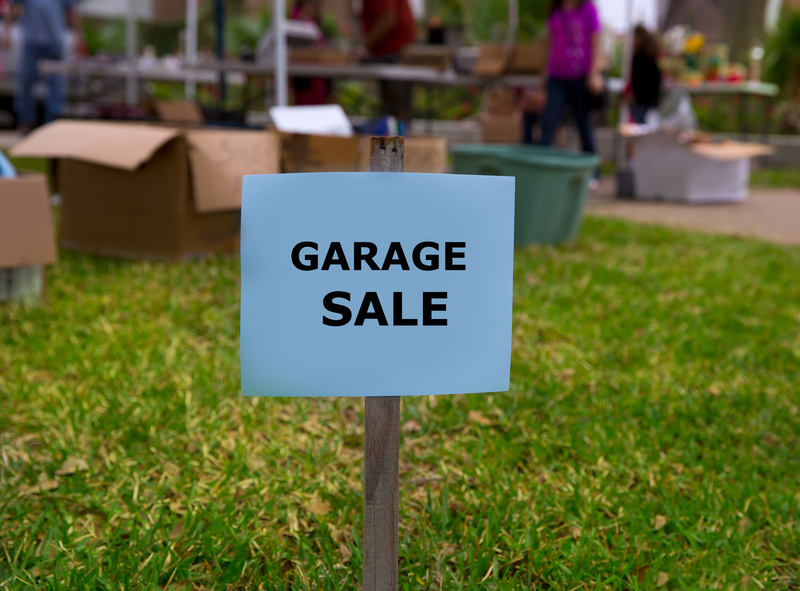Keeping Communities Safe Through Proper PPE Disposal
The global pandemic has irreversibly changed the way we think about personal protection and public health. As a result, the use of Personal Protective Equipment (PPE) -- such as face masks, gloves, face shields, and gowns -- has skyrocketed. While PPE is essential for protecting individuals from infectious diseases, improper disposal poses serious health and environmental threats. This comprehensive guide explores the importance of proper PPE disposal, its impact on community safety, and practical methods to ensure safe handling and eco-friendly practices.
Why Proper PPE Disposal Matters
Personal Protective Equipment is designed to safeguard individuals from contaminants, airborne particles, and biological hazards. However, once used, PPE can carry infectious agents, hazardous chemicals, and microplastics into the environment if not disposed of correctly. Proper PPE disposal is crucial not just for personal safety, but for the well-being of the entire community.
The Risks of Improper PPE Disposal
- Public Health Risks: Used masks and gloves can transmit viruses and bacteria, endangering sanitation workers, community members, and wildlife.
- Environmental Pollution: Non-biodegradable PPE contributes to land and water pollution, threatens marine life, and increases plastic waste.
- Blocked Sewer Systems: PPE items, especially masks and gloves, can clog drains and sewage systems, leading to floods and sanitation issues.

Types of PPE and Their Disposal Methods
Understanding how to dispose of different types of personal protective gear is key to keeping our neighborhoods safe through responsible PPE waste management:
Face Masks
Face masks, especially single-use surgical masks and N95 respirators, are often made of several layers of polypropylene plastic. They should never be flushed down the toilet or thrown onto the ground.
- Single-use masks: Discard in a lined trash bin after placing them in a sealed bag to prevent contamination.
- Cloth masks: Wash and reuse when possible; only dispose of when they're damaged, following local textile disposal guidelines.
Gloves
Single-use gloves, commonly made from latex, nitrile, or vinyl, can harbor infectious agents on their surfaces.
- Remove gloves safely by peeling them away from your body, turning them inside out.
- Dispose of in a tightly sealed bag in a designated waste container.
Gowns, Aprons, and Face Shields
- If contaminated with bodily fluids, double-bag and discard in medical waste or according to local hazardous waste guidelines.
- Non-contaminated items may be disposed of in general waste. If reusable, launder following appropriate health protocols.
Proper PPE Disposal Procedures for Community Safety
The foundation of community safety through correct PPE disposal is education and adherence to best practices. Here is a step-by-step guideline:
- Do Not Litter: Always place used PPE in designated waste bins. Discarding PPE in public spaces increases the risk of disease transmission.
- Bag and Seal: Place used PPE in a plastic or biohazard bag. Tie the bag securely before disposing of it in a covered trash bin.
- Wash Your Hands: Immediately wash your hands with soap and water for at least 20 seconds after handling used PPE.
- Separate PPE Waste: If possible, set aside a specific bin for PPE to prevent mixing it with general rubbish, especially if household members are sick or quarantining.
- Follow Local Guidelines: Check your municipality's rules for PPE disposal, as some areas have special collection or drop-off points for hazardous waste.
The Environmental Impact of PPE Waste
During the COVID-19 pandemic, global usage of face masks alone has soared to billions per day. Unfortunately, a significant proportion ends up polluting streets, rivers, and oceans. This creates several environmental challenges:
- Microplastics: Discarded PPE items break down into microplastics, polluting waterways and entering the food chain.
- Harm to Wildlife: Animals mistake PPE waste for food or become entangled, with deadly consequences.
- Waste Management Strain: Municipalities struggle with unprecedented volumes of plastic-based PPE, burdening existing waste management infrastructure.
Promoting Eco-Friendly Alternatives
To reduce environmental impact, choose reusable, washable PPE when possible. Many companies now produce eco-conscious masks and gloves made of biodegradable materials. Establishing community programs for PPE recycling and advocating for manufacturers to design environmentally friendly PPE are vital for long-term sustainability.
Community Strategies for Safe PPE Collection and Disposal
Communities play a crucial role in reducing PPE-related hazards. By implementing and enforcing safe disposal practices, entire neighborhoods can unite to protect public health and our environment.
Public Awareness and Education
- Post clear signage: Label waste bins for PPE at strategic locations -- entrances of shops, transport stations, and public buildings.
- Organize community talks: Educate residents about the hazards of careless PPE disposal.
- Distribute informational materials: Use flyers, local newsletters, and social media campaigns.
Provision of Adequate Disposal Points
- Install PPE-only bins in public spaces and commercial zones.
- Partner with waste management companies for frequent, safe collection.
Engage Local Businesses and Institutions
- Encourage businesses to provide PPE disposal stations for customers and staff.
- Schools, hospitals, and offices should adopt internal protocols for regular PPE collection and safe handling.
The Role of Local Authorities and Governments
Government bodies have a responsibility to protect their communities through PPE disposal regulations. This includes:
- Legislation: Enacting laws that require safe disposal of PPE in public and private spaces.
- Resource Allocation: Providing funding for specialized PPE waste bins and extra collection services.
- Penalties: Imposing fines for improper disposal to deter littering and dumping.
- Collaboration: Working with environmental organizations and healthcare providers to promote safe disposal campaigns.
Innovative Solutions for PPE Waste Management
- PPE Recycling Programs: Piloting efforts that recycle masks and gloves into raw materials for construction or fuel.
- Smart Bins: Adopting sensor-equipped disposal bins that alert authorities when full.
- Research and Development: Supporting initiatives to develop biodegradable, compostable PPE products.
Healthcare Facilities and PPE Waste Management
Hospitals, clinics, and eldercare centers generate large volumes of PPE waste daily. Ensuring rigorous disposal protocols in healthcare settings is imperative to prevent the spread of infections and meet regulatory compliance.
- Segregate PPE waste at the point of use using color-coded bins.
- Adopt double-bagging procedures for biohazardous materials.
- Arrange for certified medical waste contractors to transport and process PPE waste safely.
- Provide continuous staff training on updated PPE disposal protocols.

The Future of PPE Usage and Community Health
The COVID-19 pandemic has highlighted the importance of community-wide commitment to safety protocols, including PPE use and disposal. Even as pandemic risks subside, practices learned today will help control future outbreaks of infectious diseases and minimize environmental pollution.
- Preparedness: Stockpiling eco-friendly PPE and disposal supplies for future public health crises.
- Innovation: Investing in research for sustainable PPE materials and advanced waste management technologies.
- Resilience: Fostering community solidarity and responsibility, ensuring that everyone contributes to a safer, cleaner environment.
Conclusion: Community Safety Starts with Responsible PPE Disposal
Proper disposal of PPE is not just a personal obligation -- it's a civic duty that underpins the health and safety of our communities. Whether you are an individual, a business owner, or a community leader, adopting and advocating for responsible PPE waste management helps prevent disease transmission, protects the environment, and preserves public resources.
Together, we can build safer, healthier neighborhoods by recognizing the critical role of PPE disposal in community safety. Stay informed, dispose responsibly, and encourage others to do the same to keep our world safe for everyone.
Frequently Asked Questions (FAQ) About PPE Disposal
- Should I recycle my used PPE? - Most single-use PPE cannot be recycled through standard recycling programs and should be disposed of in the trash, unless a special PPE recycling scheme is available.
- Can I compost biodegradable PPE? - Only compost PPE labeled as fully biodegradable and accepted by your local composting facilities.
- Is it safe to burn used PPE at home? - No. Burning PPE can release toxic fumes; always use official waste disposal services.
- What if I see PPE litter in my community? - Report to local authorities and, if safe, collect it using gloves and place in a sealed bag for disposal.
By following these guidelines and spreading awareness, we can maintain community health, protect the environment, and thrive together in the face of future challenges.
